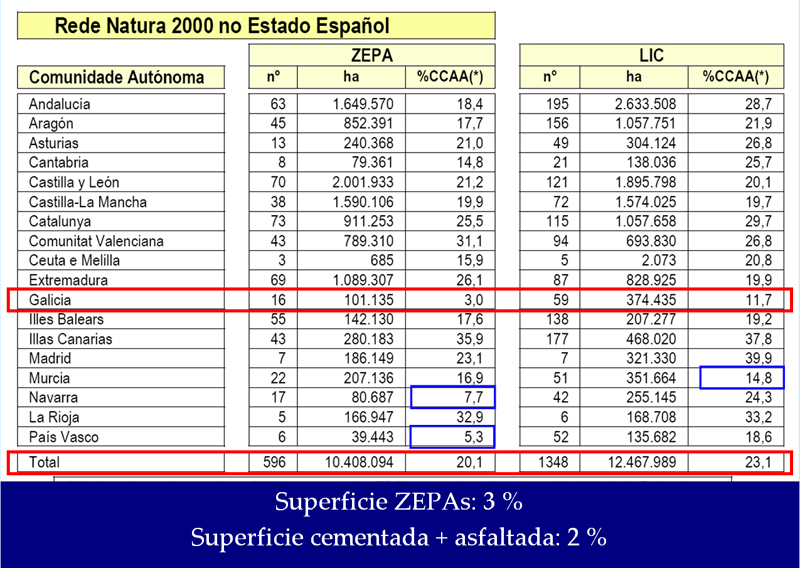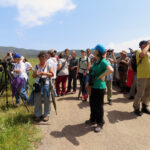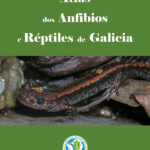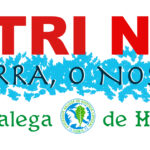Seven Galician nature conservation organisations ask the Chancellorship for the Environment for information on “next generation” fund application proposals (PDF).
Several weeks ago the Chancellorship for Environment, Territory and Housing announced the presentation of 10 projects on biodiversity to be eligible for European funding for economic recovery, known as “Next Generation” funds. In this announcement a series of actions were proposed superficially and without specifics, which we think need to be explained and opened to the participation of civil society to adapt these funds to real needs, which are many, in terms of biodiversity in Galicia.
“Next Generation” funds pose a great opportunity to improve the conservation state of our battered environment and should have as an objective the conservation and restoration of marine and terrestrial ecosystems and their biodiversity in the broadest sense possible, especially, in protected areas, Natura network and species with recovery plans approved or pending approval or other that really justified the declaration of these concepts of protection, without forgetting the need of increasing the surface of protected areas. Conversely, the utilisation of these funds should not be considered for actions over infrastructures or for the promotion of the public usage of these areas.
Organisations which signed said document asked for more detailed information of the 10 projects in terms of biodiversity signalled by the Chancellorship for Environment as recipient of economic recovery funds. It would be desirable that participation would be possible for civil society in the prioritisation and decision-making on the investment of these funds. For this reason, we just requested a telematic meeting with the chancellor Ms Ánxeles Vázquez and the General Director for Natural Heritage Ms Belén María do Campo to have more direct information of this subject, which we understand to be of great importance for the conservation of nature in Galicia.
In this regard, we understand that further from the opportunity the “Next Generation” funds may pose, the management and conservation of biodiversity in Galicia has been stalled for years and European rules are not met, nor the duties of the competences in terms of environment and nature conservation, there being a gap in the implementation of these policies in the territory.
Natura 2000 network is less than 12% of the territory in Galicia, far behind the Spanish average. We consider that it is fundamental to address the extension of many of these areas, specially those of eastern Galician mountains, or declare new bird protection areas (SPAs) and other areas with habitats and relevant species. In parallel, it would be necessary to provide with specific planning each Natura 2000 network area. The degradation of many areas of the network is manifest and it is urgent their planning and management in order not to end up losing the values that led to their listing. It is worth mentioning the case of wetlands suffering the lack of adequate management for the conservation of their environmental values.

Most of the species of the Galician Catalogue for Endangered Species, despite the time passed do not have recovery or conservation plans approved. We cite for example the little bustard (Tetrax tetrax), the Montagu’s harrier (Circus pygargus), the hen harrier (Circus cyaneus) and the shag (Phalacrocorax asristotelis), species catalogued that need urgent interventions to avoid their imminent disappearance. The few species with recovery or conservation plans approved to this day, such as the Kentish plover (Charadrius alexandrinus), catalogued as vulnerable, or the reed bunting (Emberiza schoeniclus lusitanica) catalogued as endangered, do not receive the appropriate consideration for the restoration and conservation of their habitats. Similarly there are species with obsolete recovery plans, such as the grizzly bear, whose plan needs to be updated to current circumstances of the species.
This grim picture of biodiversity in Galicia urgently needs to be reversed and we think the application of the green recovery funds is a good opportunity to begin.
- Asociación para a Defensa Ecolóxica de Galicia (ADEGA)
- Asociación Amigos da Terra
- Asociación Galega de Custodia do Territorio
- Asociación Verdegaia
- Grupo Naturalista Hábitat (GNH)
- Sociedade Galega de Historia Natural (SGHN)
- Sociedade Galega de Ornitoloxía (SGO)
Text translated by Xoán Núñez Bazal (student of the Degree of Translation and Interpretation of the University of Vigo)






